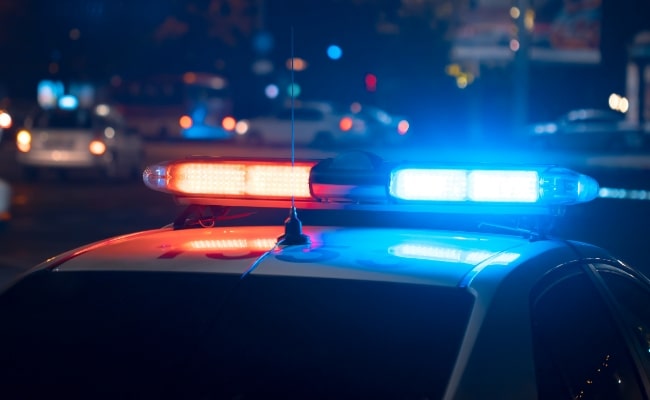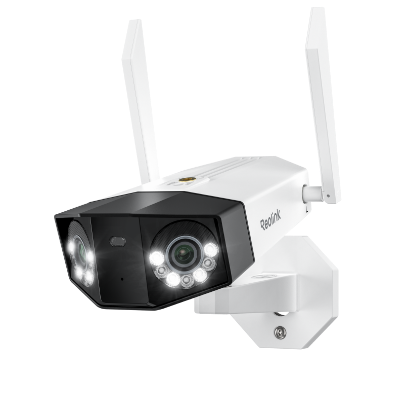Police Requests Security Camera Footage: When and What to Do

Security cameras have become ubiquitous in both commercial and residential settings. As these systems capture more video footage of public areas and private property, requests from law enforcement agencies to access security camera recordings are also on the rise.
Knowing when can police request security camera footage, what specific clips to provide, and how to properly cooperate can empower citizens and protect civil liberties when such requests occur. In this article, we will outline common situations where police may legally request private security footage, as well as best practices for homeowners and businesses in responding to those requests.
Can Police Take Your Home Security Footage?
In most cases, police cannot confiscate or take your home security camera footage without a warrant or court order. The Fourth Amendment provides broad protections against unreasonable government searches and seizures of your property without warrants based on probable cause. Courts have generally considered the footage from a home's external-facing or internal security cameras to be covered under expectations of privacy.
However, some exceptions do exist. If officers can view footage from a public space where no privacy rights apply, they may be able to access those images directly from your system without a warrant.
Giving Security Camera Footage to Police: When & Why
There are various situations where giving some or all footage from your security cameras to law enforcement voluntarily could be warranted or required:
Criminal Activity
If a crime occurs in the sightline and timeframe covered by your cameras, police can formally request access to the relevant footage as part of investigating that offense. This may provide them with essential evidence and lead to identifying involved persons and pressing charges.
Incidents Near or On Your Property
Even if no crime definitively occurred, police may still want to review camera footage from an area where a suspicious incident took place or a complaint was submitted.
Safety Issues and Concerns
In matters relating to public welfare rather than criminal acts per se, officials may request camera data to address safety problems. Examples include reviewing video after a collision between vehicles or requesting continuous access to feeds monitoring a hazardous intersection so issues can be mitigated.
Emergency
Police access exceptions exist when an immediate crisis issue requires rapid response. If officers have a reasonable belief that a security camera feed would provide critical information to address an ongoing emergency or disaster and preserve life, they can legally access it without a warrant on-site under the exigent circumstances exception.
Legal Requests
If the police have an active warrant, court order, or judicial subpoena explicitly requiring you to furnish security camera footage for a formal legal proceeding or criminal investigation, you generally must comply.
What to Do When Police Request Security Camera Footage
When law enforcement officers ask to review footage from your home or business security cameras, either voluntarily or under legal mandate, procedures exist to handle these requests properly:
1. Confirm the Legitimacy
When an officer initially asks to access your security camera system or see the footage, ask them to confirm the request is official police business and explain the reasons for needing this footage. Verify any documents if the request is not voluntary but rather a compulsory legal process before providing footage.
2. Seek Legal Advice If In Doubt
If you still harbor doubts about the legality of a police footage request after the officer has provided details, or you remain unsure what footage you need to or should furnish, consult privately with an attorney before proceeding. They can advise you on proper protocols and rights.
3. Document Request Details
Record information like the date, names of officers, badge numbers, direct contact information, case numbers, etc. Maintain an ongoing written record of all substantial communications with police over the request and what footage you furnish.
4. Cooperate Professionally
Once legitimacy is confirmed and protocols clear, cooperate politely and promptly with proper, lawful requests. But do not supply more footage than precisely what the warrant or subpoena compels.
5. Provide Only Specific Timeframes
Even if obligated to share footage, only furnish the police with the precise clips relevant to the described incident, complaint, or investigation. This protects privacy for other time periods caught on camera unrelated to the police matter.
6. Maintain a Copy
While providing responsive clips to law enforcement per request, also make your own copy of footage submitted to them for reference and accountability.
7. Follow Up On Use Status
Circle back with the department per written records to confirm whether an investigation involving your footage remains ongoing or has concluded. This creates helpful closure documenting responsible civic cooperation.
Can You Ask a Store for Security Footage?
Do you think can stores show you security footage? Well, in most states, retail establishments like stores and restaurants are not required by law to disclose or provide copies of their business security camera footage to random customers or patrons who ask. Policies differ between companies, but many decline such requests, citing corporate privacy rules, legal liability concerns, and the preservation of evidence.
However, some retail businesses may allow a customer to privately review on-site a short, immediately relevant clip from security cameras, which is essential to resolving a non-criminal incident that directly impacted or involved that customer on the premises.
How to Request Security Footage
When formally seeking to access and obtain copies of security camera footage from an external organization like a store, school, or workplace, responsible protocols exist for making such requests effectively:
- Identify the party responsible for stored recordings, whether a corporate supervisor, school administrator, building facilities manager, etc.
- Prepare written details on the incident you seek footage of, including date, estimated time, specific cameras and locations, and parties involved. Give context on why this recording matters.
- Provide your full contact information and relationship to the incident. Stress responsible intentions for the request and use of resulting footage.
- Comply with privacy laws and company policies that may properly govern or restrict external sharing of security recordings beyond law enforcement.
- Make the initial request politely in writing as a formal inquiry or petition to the responsible decision-maker regarding the relevant footage rather than demanding immediate access.
- Follow up cooperatively, providing any additional incident details to facilitate consideration of the request, and willingly receiving explanations from the organization if access is denied per policy.
Best Security Camera with High-Quality Recording Recommendation
As security camera footage becomes increasingly important for investigating incidents, investing in advanced systems like Reolink Duo 3 PoE and Duo 3 WiFi camera can provide superior image quality and reliability. With best-in-class 16MP video across a 180-degree viewing angle, the Duo 3 captures ultra sharp, highly detailed footage day and night.
Designed for scalable business applications but also home use, it delivers industry-leading recording fidelity, making the Reolink Duo 3 an ideal camera for both meeting lawful requests and defending rights. Its compellingly crisp, high-resolution images stand out as some of the most persuasive and irrefutable video evidence available.
Groundbreaking 16MP Dual-Lens WiFi Camera
16MP UHD, Dual-Lens, Motion Track, 180° Wide Viewing Angle, Plug-In WiFi, Color Night Vision.
FAQs
How do I subpoena a security camera footage?
To legally compel a business or property owner to provide security camera video evidence through a court of law rather than through voluntary cooperation, you typically must secure and serve the target with an authorized subpoena document issued by a court clerk or judge per local jurisdiction procedures.
Can police tap into home security cameras?
Police cannot actively tap into your livestream home security camera feeds without obtaining a search warrant stating the probable cause of likely evidence at your residence regarding a specific crime.
Is surveillance footage direct evidence?
Yes, video recordings obtained from security and surveillance cameras generally qualify as direct evidence capable of conclusively proving or disproving alleged facts relevant to legal proceedings.
Conclusion
As security camera adoption continues rising across residential, business, law enforcement, and governmental contexts, more citizens will inevitably face scenarios where police formally request access to private security video recordings as part of investigations.
Understanding the legal rights and responsibilities surrounding how law enforcement can compel such footage is important for legal right defense. Have you ever been in situations where the police asked for footage from your camera? Share your experiences with us in the comment section below! Let's discuss together!
Search
Subscribe for the Latest Updates
Security insights & offers right into your inbox

